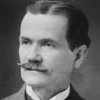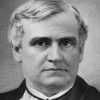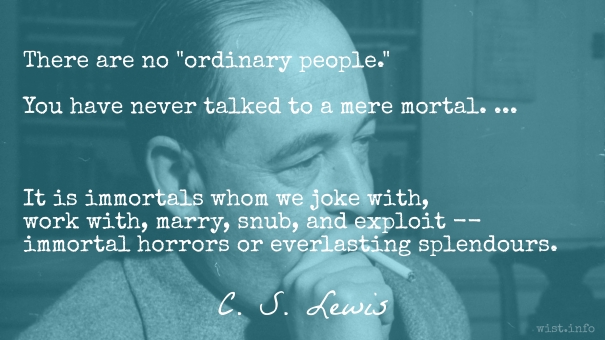If, as certain small-minded philosophers believe, I shall feel nothing at all after death, then at least I don’t have to worry that they will be there to mock me after they die!
[Sin mortuus, ut quidam minuti philosophi censent, nihil sentiam, non vereor ne hunc errorem meum philosophi mortui irrideant.]Marcus Tullius Cicero (106-43 BC) Roman orator, statesman, philosopher
De Senectute [Cato Maior; On Old Age], ch. 23 / sec. 85 (23.85) (44 BC) [tr. Freeman (2016)]
(Source)
Critiquing the Epicurians, who would disagree with his belief in an immortal soul.
(Source (Latin)). Alternate translations:
For if aftir this presente life I be dede as wele in soule as in body as that some yong and smale philosophers of whiche men name Epycures that affermyn, Certayne it is that I shall feele nothyng. And also I am not afferde that suche philosophers so ded mockyn me nor of this myne oppinion. Aftir whiche I verily beleve that the soules be undedly.
[tr. Worcester/Worcester/Scrope (1481)]
And if it were not so, that after death I should feel nothing nor have any sense at all (as certain perrifoggers and bastard philosophers hold opinino) I fear not a whit least these lip-labourers and ideitical philosophers, when they themselves be dead, should scoff and make a mocking-stock at this mine assertion and belief, because they themselves shall also be without sense, and like to brute beasts.
[tr. Newton (1569)]
But if when I am dead (as some small Philosophers say) I shall feel nothing, I fear not least the dead Philosophers should laugh at this my error.
[tr. Austin (1648)]
If those who this Opinion have despis'd,
And their whole life to pleasure sacrific'd;
Should feel their error, they when undeceiv'd,
Too late will wish, that me they had believ'd.
[tr. Denham (1669)]
But if after this Life I shall no longer be sensible, as some little Philosophers imagine, then am I in no Fear that dead Philosophers will laugh at my mistaken Opinion.
[tr. J. D. (1744)]
And if, when dead, I should (as some minute Philosophers imagine) be deprived of all further Sense, I am safe at least in this, that those Blades themselves will have no Opportunity beyond the Grave to laugh at me for my Opinion.
[tr. Logan (1744)]
I have the satisfaction in the meantime to be assured that if death should utterly extinguish my existence, as some minute philosophers assert, the groundless hope I entertained of an after-life in some better state cannot expose me to the derision of these wonderful sages, when they and I shall be no more.
[tr. Melmoth (1773)]
But if (as certain super-subtle philosophers conclude) I shall feel nothing, I am not afraid lest these philosophers, when dead, should ridicule this error of mine.
[Cornish Bros. ed. (1847)]
But if I, when dead, shall have no consciousness, as some narrow-minded philosophers imagine, I do not fear lest dead philosophers should ridicule this my delusion.
[tr. Edmonds (1874)]
While if in death, as some paltry philosophers think, I shall have no consciousness, the dead philosophers cannot ridicule this delusion of mine.
[tr. Peabody (1884)]
But if when dead, as some insignificant philosophers think, I am to be without sensation, I am not afraid of dead philosophers deriding my errors.
[tr. Shuckburgh (1895)]
But if when dead;
As some philosophers of little note
Believe, I feel no more, there is no fear
These dead philosophers should mock me there.
[tr. Allison (1916)]
But if when dead I am going to be without sensation (as some petty philosophers think), then I have no fear that these seers, when they are dead, will have the laugh on me!
[tr. Falconer (1923)]
True, certain insignificant philosophers hold that I shall feel nothing after death. If so, then at least I need not fear that after their own deaths they will be able to mock my conviction!
[tr. Grant (1960, 1971 ed.)]
If on the other hand, as certain petty philosophers have held, I shall have no sensation when I am dead, then I need have no fear that deceased philosophers will make fun of this delusion of mine.
[tr. Copley (1967)]
Some second-rate philosophers suggest that when I am dead I will be conscious of nothing. But all that means is that, if I’m wrong, they won't be able to make fun of me after their death.
[tr. Cobbold (2012)]
But anyway, if when I die my spirit also dies, I certainly won't give a flip about the opinions of dead philosophers.
[tr. Gerberding (2014)]
If when I am dead I’ll have no sensation,
As some small philosophers think, I won’t fear
Accents of derision from their graves to hear.
[tr. Bozzi (2015)]
Quotations about:
soul
Note not all quotations have been tagged, so Search may find additional quotes on this topic.
But if I err in this Opinion, that the Soul of Man is immortal, sure it is a pleasing Error, so pleasing that I can never shake it off while I live.
[Quod si in hoc erro, qui animos hominum immortalis esse credam, libenter erro nec mihi hunc errorem, quo delector, dum vivo, extorqueri volo.]
Marcus Tullius Cicero (106-43 BC) Roman orator, statesman, philosopher
De Senectute [Cato Maior; On Old Age], ch. 23 / sec. 85 (23.85) (44 BC) [tr. J. D. (1744)]
(Source)
(Source (Latin)). Alternate translations:
But if it be in erroure and oute of trouthe aftir the doctryne and scole of Epycures by cause that I beleve that the soules be undedly and Immortelle perdurable and evirlastyng I answere you that this errour pleasith me and I consente me in it right gladly and as long tyme as I lyve I wille not that any philosopher nor any othir of what condicyon that evir he be take awey fro me this erroure wherin I delyte me.
[tr. Worcester/Worcester/Scrope (1481)]
And if I do err because I think that the souls of men be immortal, verily I am well contented in the same error still to continue, and as long as I live I will never renounce nor recant the same, wherein I take such singular pleasure and comfort.
[tr. Newton (1569)]
But if I do erre that the soules of men bee immortall, I do err willingly, neither will I while I live be wrested from mine opinion wherein I am delighted.
[tr. Austin (1648), ch. 24]
My hope's, if this assurance hath deceiv'd,
(That I Man's Soul Immortal have believ'd)
And if I erre, no Pow'r shall dispossess
My thoughts of that expected happiness.
[tr. Denham (1669), Part 4]
But if I should be mistaken in this Belief, that our Souls are immortal, I am however pleased and happy in my Mistake; nor while I live, shall it ever be in the Power of Man, to beat me out of an Opinion, that yields me so solid a Comfort, and so durable a Satisfaction.
[tr. Logan (1744)]
And after all should this my firm persuasion of the soul's immortality prove to be a mere delusion, it is at least a pleasing delusion, and I will cherish it to my latest breath.
[tr. Melmoth (1773)]
But if I err in this, that I believe the soules of men to be immortal, I err willingly, nor do I wish this error to be wrested from me while I live.
[Cornish Bros. ed. (1847)]
And if I am wrong in this, that I believe the souls of men to be immortal, I willingly delude myself : nor do I desire that this mistake, in which I take pleasure, should be wrested from me as long as I live.
[tr. Edmonds (1874)]
But if I err in believing that the souls of men are immortal, I am glad thus to err, nor am I willing that this error in which I delight shall be wrested from me so long as I live.
[tr. Peabody (1884)]
But if I am wrong in thinking the human soul immortal, I am glad to be wrong; nor will I allow the mistake which gives me so much pleasure to be wrested from me as long as I live.
[tr. Shuckburgh (1895)]
But if in thinking souls immortal thus,
I am in error, I confess to you,
It is an error that I glory in,
And being so pleasant, I would not desire
To lose it while I live.
[tr. Allison (1916)]
And if I err in my belief that the souls of men are immortal, I gladly err, nor do I wish this error which gives me pleasure to be wrested from me while I live.
[tr. Falconer (1923)]
Even if I am mistaken in my belief that the soul is immortal, I make the mistake gladly, for the belief makes me happy, and is one which as long as I live I want to retain.
[tr. Grant (1960, 1971 ed.)]
And if I am deluded in believing that the soul of man is immortal, then I am glad to be deluded, and I hope no one, as long as I live, will ever wrench this delusion from me.
[tr. Copley (1967)]
But if I am mistaken in this belief of mine that the souls of men are immortal, then I am happy to be mistaken; but as long as I am still alive, I have no wish to be disabused of my mistake.
[tr. Cobbold (2012)]
I may be wrong in my belief in the immorality of the spirit: there are philosophers who think I am. I like my faith and I don't want to lose it.
[tr. Gerberding (2014)]
And if it is an error of mine to imply
That man is endowed with immortal soul,
I err with pleasure and promptly console
Myself as long as I am alive and spry.
[tr. Bozzi (2015)]
And if I’m wrong in my belief that souls are immortal, then gladly do I err, for this belief, which I hope to maintain as long as I live, makes me happy.
[tr. Freeman (2016)]
Life beats down and crushes the soul, and art reminds you that you have one.
Stella Adler (1901-1992) American actor and acting teacher
Quoted in Barry Paris, ed., Stella Adler on America’s Master Playwrights, Introduction (2012)
(Source)
Therefore, rise. Force your breath, restore it
By that spirit which wins in every battle it fights,
Unless the beaten body says, “no more!”[E però leva sù; vinci l’ambascia
l’animo che vince ogne battaglia,
col suo grave corpo non s’accascia.]Dante Alighieri (1265-1321) Italian poet
The Divine Comedy [Divina Commedia], Book 1 “Inferno,” Canto 24, l. 52ff (24.52-54) [Virgil] (1309) [tr. Raffel (2010)]
(Source)
(Source (Italian)). Alternate translations:
Therefore rise up; your breathing short o'ercome
With Courage, for it ev'ry battle wins;
Unless your heavy limbs submit to sloth.
[tr. Rogers (1782)]
Arise!-- It ill befits the mounting mind
With mortal cares debas'd, to lag behind.
[tr. Boyd (1802)]
Thou therefore rise: vanish thy weariness
By the mind’s effort, in each struggle form’d
To vanquish, if she suffer not the weight
Of her corporeal frame to crush her down.
[tr. Cary (1814)]
Up then; o'ercome thy breathlessness by mind;
To win the battle mind shall never fail.
If by her own dull body's weight declined
She faint not.
[tr. Dayman (1843)]
And therefore rise! conquer thy panting with the soul, that conquers every battle, if with its heavy body it sinks not down.
[tr. Carlyle (1849)]
Then rouse thyself and conquer thy fatigue,
With mind victorious in every battle,
Unless the dull frame subdue its mettle.
[tr. Bannerman (1850)]
Up, up, then, up! conquer thy suff'ring breath,
That courage rouse which ev'ry battle wins,
If not kept down by the too-heavy flesh.
[tr. Johnston (1867)]
And therefore raise thee up, o'ercome the anguish
With spirit that o'ercometh every battle,
If with its heavy body it sink not.
[tr. Longfellow (1867)]
And therefore lift up, conquer the task with the mind that wins every battle, if with its heavy jody it throw not itself down.
[tr. Butler (1885)]
Therefore arise, thy weakness stem with worth
Of soul, that of all battles wins the prime,
Unless 'tis borne down by the body's dearth.
[tr. Minchin (1885)]
And therefore rise up, conquer the exhaustion with the spirit that conquers every battle, if by its heavy body it be not dragged down.
[tr. Norton (1892)]
Wherefore bestir thyself; conquer thy weariness with the courageous soul that conquereth in every fight, if it so be that it is not dragged down by the body's weight.
[tr. Sullivan (1893)]
And so do thou rise up, conquer the shortness
Of breath with spirit that wins every battle.
If with its heavy body it does not totter.
[tr. Griffith (1908)]
Rise, therefore, conquer thy panting with the soul, which conquers in every battle if it sink not with its body's weight.
[tr. Sinclair (1939)]
And therefore rise! Quell now thy panting breast
With the soul's strength that winneth every fight,
So it be not by the body's weight deprest.
[tr. Binyon (1943)]
Rise up; control thy panting breath, and call
The soul to aid, that wins in every fight,
Save the dull flesh should drag it to a fall.
[tr. Sayers (1949)]
Now, therefore, rise. Control your breath, and call
upon the strength of soul that wins all battles
unless it sink in the gross body's fall.
[tr. Ciardi (1954)]
Rise, therefore; conquer your panting with the soul that vvins every battle, if with its heavy body it sinks not down.
[tr. Singleton (1970)]
Stand up! Dominate this weariness of yours
with the strength of soul that wins in every battle
if it does not sink beneath the body's weight.
[tr. Musa (1971)]
Therefore, get up; defeat your breathlessness
with spirit that can win all battles if
the body’s heaviness does not deter it.
[tr. Mandelbaum (1980)]
Therefore get up: control your breathlessness
By force of mind, which wins in every battle,
If with its heavy body it does not sink.
[tr. Sisson (1981)]
So stand
And overcome your panting -- with the soul
Which wins all battles if it does not despond
Under its heavy body's weight.
[tr. Pinsky (1994), l. 52ff]
And therefore stand up; conquer your panting with the spirit that conquers in every battle, if it does not let the heavy body crush it down.
[tr. Durling (1996)]
So rise, and overcome weariness with spirit, that wins every battle, if it does not lie down with the gross body.
[tr. Kline (2002)]
Get up! breathe with the soul, for it is brave
in every battle, and will always win,
unless the heavy body be its grave.
[tr. Carson (2002)]
So upwards! On! And vanquish labored breath!
In any battle mind-power will prevail,
unless the weight of body loads it down.
[tr. Kirkpatrick (2006)]
Get to your feet! Conquer this laboring breath
with strength of mind, which wins the battle
if not dragged down by body's weight.
[tr. Hollander/Hollander (2007)]
Therefore arise, with your soul’s flag unfurled
Above your fear, for so your soul prevails
In every battle if the body's weight
Can't sink it.
[tr. James (2013)]
Your computer is a backup of your soul, a multilayered, menu-driven representation of who you are, who you care about, and how you sin.
Michael Marshall Smith (b. 1965) English author, screenwriter [writes as Michael Marshall, M. M. Smith, Michael Rutger]
The Lonely Dead [The Upright Man], ch. 11 (2004) [as Michael Marshall]
(Source)
The primary benefit of practicing any art, whether well or badly, is that it enables one’s soul to grow.
Kurt Vonnegut, Jr. (1922-2007) American novelist, journalist
“Despite Tough Guys, Life Is Not the Only School for Real Novelists,” New York Times (1999-05-24)
(Source)
Part of the Times "Writers on Writing" series.
In Man Without a Country, ch. 3 "Here Is a Lesson in Creative Writing" (2005), Vonnegut expanded on this:
Practicing an art, no matter how well or badly, is a way to make your soul grow, for heaven's sake. Sing in the shower. Dance to the radio. Tell stories. Write a poem to a friend, even a lousy poem. Do it as well as you possibly can. You will get an enormous reward. You will have created something.
Each man’s soul is a menagerie where Conscience, the animal-tamer, lives with a collection of wild beasts.
Austin O'Malley (1858-1932) American ophthalmologist, professor of literature, aphorist
Keystones of Thought (1914)
(Source)
I believe that man will not merely endure: he will prevail. He is immortal, not because he alone among creatures has an inexhaustible voice, but because he has a soul, a spirit capable of compassion and sacrifice and endurance. The poet’s, the writer’s, duty is to write about these things. It is his privilege to help man endure by lifting his heart, by reminding him of the courage and honor and hope and pride and compassion and pity and sacrifice which have been the glory of his past. The poet’s voice need not merely be the record of man, it can be one of the props, the pillars to help him endure and prevail.
William Faulkner (1897-1962) American novelist
Speech, Nobel Banquet, Stockholm (10 Dec 1950)
(Source)
Faulkner received the 1949 Nobel Prize for Literature.
As the love increases in thee, so the loveliness increases: for love is itself the beauty of the soul.
Augustine of Hippo (354-430) Christian church father, philosopher, saint [b. Aurelius Augustinus]
Homilies on the 1st Epistle of John [Tractatus in epistulam Ioannis ad Parthos], Homily 9 [tr. Browne (1888)]
Sermon on 1 John 4:17-21. Alternate translations:
Beauty grows in you to the extent that love grows, because charity itself is the soul's beauty.
[tr. Ramsey (1990)]
Inasmuch as love grows in you, in so much beauty grows; for love is itself the beauty of the soul.
if you don’t have much soul left and you know it, you still got soul.
Charles Bukowski (1920-1994) German-American author, poet
“A Dollar and Twenty Cents” (1967)
(Source)
Often misquoted as "If you're losing your soul and you know it, then you've still got a soul left to lose."
there’s a bluebird in my heart that
wants to get out
but I’m too tough for him,
I say, stay in there, I’m not going
to let anybody see
you.
When asked to define a friend, he said, “One soul dwelling in two bodies.”
[ἐρωτηθεὶς τί ἐστι φίλος, ἔφη, “μία ψυχὴ δύο σώμασιν ἐνοικοῦσα.”]
Aristotle (384-322 BC) Greek philosopher
Attributed in Diogenes Laërtius, Lives and Opinions of Eminent Philosophers [Vitae Philosophorum], Book 5, sec. 11 [tr. Mensch (2018)]
(Source)
(Source (Greek)). Alternate translations:
He was once asked what a friend is; and his answer was, “One soul abiding in two bodies.”
[tr. Yonge (1853)]
To the query, "What is a friend?" his reply was, "A single soul dwelling in two bodies."
[tr. Hicks (1925), sec. 20]
When he was asked what a friend is, he replied “one soul occupying two bodies.”
[tr. @sentantiq (2016)]
Such as are your habitual thoughts, such also will be the character of your mind; for the soul becomes dyed with the color of its thoughts.
Marcus Aurelius (AD 121-180) Roman emperor (161-180), Stoic philosopher
Meditations, Book 5, #16
Alt. trans.:
- "Your mind will be like its habitual thoughts; for the soul becomes dyed with the color of its thoughts."
- "Whatever kind of impressions you receive most often, so too will be your mind, for the soul is dyed with the color of one's impressions." [tr. Needleman & Piazza (2008)]
- "Your manners will depend very much upon the quality of what you frequently think on; for the soul is as it were tinged with the color and complexion of thought." [tr. Collier (1887)]
The last clause is also frequently attributed to William Ralph Inge, who likely used it in an essay.
But if physical death is the price that a man must pay to free his children and his white brethren from a permanent death of the spirit, then nothing could be more redemptive. This is the type of soul force that I am convinced will triumph over the physical force of the oppressor.
Martin Luther King, Jr. (1929-1968) American clergyman, civil rights leader, social activist, preacher
“The Rising Tide of Racial Consciousness,” Speech, National Urban League, New York (6 Sep 1960)
(Source)
A person can go on living fairly well, seem to be a human being, be occupied with temporal matters, marry, have children, be honored and esteemed — and it may not be detected that in a deeper sense this person lacks a self. Such things do not create much of a stir in the world, for a self is the last thing the world cares about and the most dangerous thing of all for a person to show signs of having. The greatest hazard of all, losing one’s self, can occur very quietly in the world, as if it were nothing at all. No other loss can occur so quietly; any other loss — an arm, a leg, five dollars, a wife, etc. — is sure to be noticed.
Søren Kierkegaard (1813-1855) Danish philosopher, theologian
The Sickness unto Death, “The Forms of This Sickness, i.e., of Despair,” 1.a.1 (1849)
Alt. trans.:
- "A man may nevertheless be perfectly well able to live on, to be a mn, a it seems, to occupy himself with temporal things, get married, beget children, win honor and esteem -- and perhaps no one notices that in a deeper sense he lacks a self. About such a thing as that not much fuss made in the world for a self is the thing the world is least apt to inquire about, and the thing of all things the most dangerous for a man to let people notice that he has it. The greatest danger, that of losing one's own self, may pass off as quietly as if it were nothing; every other loss, that of an arm, a leg, five dollars, a wife, etc., is sure to be noticed." (Source)
- "But to become fantastic in this way, and therefore be in despair, although usually obvious, does not mean that a person may not continue living a fairly good life, to all appearances be someone, employed with temporal matters, get married, beget children, be honored and esteemed -- and one may fail to notice that in a deeper sense he lacks a self. Such things cause little stir in the world; for in the world a self is what one least asks after, and the thing it is the most dangerous of all to show signs of having. The biggest danger, that of losing oneself, can pass off in the world as quietly as if it were nothing; every other loss, an arm, a leg, five dollars, a wife, etc. is bound to be noticed." (Source)
Man is a reasoning animal. Therefore, man’s highest good is attained if he has fulfilled the good for which nature designed him at birth. And what is it which this reason demands of him? The easiest thing in the world — to live in accordance with his nature. But this has turned into a hard task by the general madness of mankind; we push one
another into vice.Seneca the Younger (c. 4 BC-AD 65) Roman statesman, philosopher, playwright [Lucius Annaeus Seneca]
Letters to Lucilius, Letter 41 (c. 65 AD)
(Source)
It is our firm belief that if souls were visible to the eye we should clearly see that strange thing whereby every single member of the human species corresponds to some species of the animal world. And we would easily be able to recognize that truth barely apprehended by the philosopher, which is that, from the oyster to the eagle, from the pig to the tiger, all animals are to be found in mankind, and each one of them is to be found in some man. Sometimes even several at a time.
[Dans notre conviction, si les âmes étaient visibles aux yeux, on verrait distinctement cette chose étrange que chacun des individus de l’espèce humaine correspond à quelqu’une des espèces de la création animale ; et l’on pourrait reconnaître aisément cette vérité à peine entrevue par le penseur, que, depuis l’huître jusqu’à l’aigle, depuis le porc jusqu’au tigre, tous les animaux sont dans l’homme et que chacun d’eux est dans un homme. Quelquefois même plusieurs d’entre eux à la fois.]
Victor Hugo (1802-1885) French writer
Les Misérables, Part 1 “Fantine,” Book 5 “The Descent,” ch. 5 (1.5.5) (1862) [tr. Donougher (2013)]
(Source)
Commentary while introducing Javert (whose "animal" is the one wolf born in each litter which is killed by the mother so that he does not kill the others).
(Source (French)). Alternate translations:
It is our conviction that if souls were visible to the eyes, we should be able to see distinctly that strange thing, that each one individual of the human race corresponds to some one of the species of the animal creation; and we could easily recognize this truth, hardly perceived by the thinker, that from the oyster to the eagle, from the pig to the tiger, all animals exist in man, and that in each one of them is in a man. Sometimes even several of them at a time.
[tr. Wilbour (1862)]
In our conviction, if souls were visible we should distinctly see the strange fact that every individual of the human species corresponds to some one of the species of animal creation; and we might easily recognize the truth, which has as yet scarce occurred to the thinker, that, from the oyster to the eagle, from the hog to the tiger, all animals are in man, and that each of them is in a man; at times, several of them at once.
[tr. Wraxall (1862)]
It is our conviction that if souls were visible to the eyes, we should be able to see distinctly that strange thing that each one individual of the human race corresponds to some one of the species of the animal creation; and we could easily recognize this truth, hardly perceived by the thinker, that from the oyster to the eagle, from the pig to the tiger, all animals exist in man, and that each one of them is in a man. Sometimes even several of them at a time.
[tr. Hapgood (1887)]
It is our belief that if the soul were visible to the eye every member of the human species would be seen to correspond to some species of the animal world and a truth scarcely perceived by thinkers would be readily confirmed, namely, that from the oyster to the eagle, from the swine to the tiger, all animals are to be found in men and each of them exists in some man, sometimes several at a time.
[tr. Denny (1976)]
It is our belief that if the soul were visible to the eye, every member of the human species would be seen to correspond to some species of the animal world, and a truth scarcely perceived by thinkers would be readily confirmed, namely, that from the oyster to the eagle, from the swine to the tiger, all animals are to be found in men and each of them exists in some man, sometimes several at a time.
[tr. Wilbour/Fahnestock/MacAfee (1987)]
HENRY: Every subject’s duty is the king’s; but every subject’s soul is his own.
William Shakespeare (1564-1616) English dramatist and poet
Henry V, Act 4, sc. 1, l. 182ff (4.1.182-183) (1599)
(Source)
Eschewing responsibility for his soldiers dying with unconfessed sins.
Stone walls do not a prison make,
Nor iron bars a cage.
Dreadful will be the day when the world becomes contented, when one great universal satisfaction spreads itself over the world. Sad will be the day for every man when he becomes absolutely contented with the life that he is living, with the thoughts that he is thinking, with the deeds that he is doing, when there is not forever beating at the doors of his soul some great desire to do something larger which he knows that he was meant and made to do because he is a child of God.
One sure window into a person’s soul is his reading list.
Mary B. W. Tabor (b. 1964) American journalist [Mary Britt Wellford Tabor]
“Book Notes,” New York Times (14 Jun 1995)
(Source)
The Bible is a sealed book to him who has not first heard its laws from his soul.
Ralph Waldo Emerson (1803-1882) American essayist, lecturer, poet
“Trust Yourself,” Sermon 90 (1830)
(Source)
Sermon on Matthew 16:26.
There are no ordinary people. You have never talked to a mere mortal. Nations, cultures, arts, civilisations — these are mortal, and their life is to ours as the life of a gnat. But it is immortals whom we joke with, work with, marry, snub, and exploit — immortal horrors or everlasting splendours. This does not mean that we are to be perpetually solemn: We must play. But our merriment must be of that kind (and it is, in fact, the merriest kind) which exists between people who have, from the outset, taken each other seriously — no flippancy, no superiority, no presumption. And our charity must be a real and costly love, with deep feeling for the sins in spite of which we love the sinner — no mere tolerance, or indulgence which parodies love as flippancy parodies merriment. Next to the Blessed Sacrament itself, your neighbour is the holiest object presented to your senses. If he is your Christian neighbour, he is holy in almost the same way, for in him also Christ vere latitat — the glorifier and the glorified, Glory Himself, is truly hidden.
I am sorry to hear of the little dog’s death. The animal creation is a strange mystery. We can make some attempt to understand human suffering: but the sufferings of animals from the beginning of the world till now (inflicted not only by us but by one another) — what is one to think? And again, how strange that God brings us into such intimate relations with creatures of whose real purpose and destiny we remain forever ignorant. We know to some degree what angels and men are for. But what is a flea for, or a wild dog?
He who fasteth and doth no Good, saveth his Bread but loseth his Soul.
Thomas Fuller (1654-1734) English physician, preacher, aphorist, writer
Gnomologia: Adages and Proverbs, #2382 (1732)
(Source)
Whoever destroys a soul, it is considered as if he destroyed an entire world. And whoever saves a life, it is considered as if he saved an entire world.
The Talmud (AD 200-500) Collection of Jewish rabbinical writings
Mishnah Sanhedrin 4:9; Yerushalmi Talmud, Tractate Sanhedrin 37a
(Source)
Alt. trans.: "Whoever destroys a single life is as guilty as though he had destroyed the entire world; and whoever rescues a single life earns as much merit as though he had rescued the entire world."
Even in the most wretched being there is a tiny hook on which a thread of salvation could be fastened.
Marie von Ebner-Eschenbach (1830-1916) Austrian writer
Aphorisms [Aphorismen] (1880) [tr. Scrase and Mieder (1994)]
(Source)
Forgiving our enemys haz the same refreshing effekt upon our souls az it duz tew confess our sins.
[Forgiving our enemies has the same refreshing effect upon our souls as it does to confess our sins.]
Josh Billings (1818-1885) American humorist, aphorist [pseud. of Henry Wheeler Shaw]
Everybody’s Friend, Or; Josh Billing’s Encyclopedia and Proverbial Philosophy of Wit and Humor, ch. 144 “Affurisms: Gnats” (1874)
(Source)
I don’t say I’ve got much of a soul, but, such as it is, I’m perfectly satisfied with the little chap. I don’t want people fooling about with it. ‘Leave it alone,’ I say. ‘Don’t touch it. I like it the way it is.’
CATO: The soul, secur’d in her existence, smiles
At the drawn dagger, and defies its point.Joseph Addison (1672-1719) English essayist, poet, statesman
Cato, Act 5, sc. 1, l. 124ff (1713)
(Source)
So, whatsoever that be within us which feels, thinks, desires, and animates us, it is something celestial, divine, and, consequently, imperishable.
Aristotle (384-322 BC) Greek philosopher
(Attributed)
(Source)
The earliest reference to this text that I can find is in Louis Alphonse Cahagnet, Magnétisme: The Celestial Telegraph (1850), who attributes it to Cicero's "Explanation of the Doctrines of Aristotle." It is unclear which of Cicero's actual works this refers to, and it doesn't come across as Aristotelian (or even Ciceronian), and, given the source, may be distorted, poorly translated, or bogus.












































